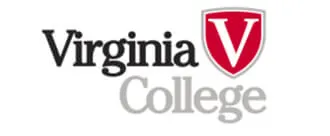Virginia College's Bachelor of Science in Paralegal Studies program is designed to provide you with a diverse overview of the legal field and prepare you for a career in law. Read on for more information about this online bachelor's degree program.
<h2 id="section---FrequentlyAskedQuestions">Frequently Asked Questions</h2>
<h3 id="section---WhatKindOfProgramIsIt"> What Kind of Program Is It?</h3>
<p>Virginia College's Bachelor of Science in Paralegal Studies program combines introductory and advanced courses in various aspects of law and the legal system. Area of concentration courses cover criminal law, civil law, estate administration, contracts, administrative law, litigation, bankruptcy, malpractice, and juvenile law. Courses also address legal ethics, law office technology, law office management, and legal research techniques. In addition, the program is designed to help prepare you for paralegal certification. The Bachelor of Science in Paralegal Studies is currently offered as an online program.
</p>
<h3 id="section---WhatAreThePrerequisites">What Are the Prerequisites?</h3>
<p>Before enrolling in the Bachelor of Science in Paralegal Studies program at Virginia College, you should have an interest in many aspects of law and possibly have some experience working in a legal office. Applicants to Virginia College programs should have a high school diploma or GED.
</p>
<h3 id="section---WhatAreTheCourseRequirements">What Are the Course Requirements?</h3>
<p>Once enrolled in the Bachelor of Science in Paralegal Studies program at Virginia College, you will be required to complete 188 quarter credit hours to earn this degree. The Paralegal Studies area of concentration curriculum and foundation courses account for 132 credits. The remaining 56 credits are taken in required and elective general education courses. General education courses encompass communications, humanities, social sciences, and mathematics.
</p>
<p><u>Foundation Courses</u>
</p>
<p />
<table border="1"><tr><th>Course Code</th><th>Course Name</th></tr>
<tr><td>EDU 1010</td><td> Learning Framework</td></tr>
<tr><td>EDU 1020</td><td> Career Exploration/Planning</td></tr>
</table><p><u>Concentration Courses</u>
</p>
<p />
<table border="1"><tr><td>AOM 1010</td><td> Keyboarding</td></tr>
<tr><td>AOM 1100</td><td> Word Processing</td></tr>
<tr><td>AOM 1200</td><td> Spreadsheets</td></tr>
<tr><td>LGA 1020</td><td> The American Legal System</td></tr>
<tr><td>LGA 1110</td><td> Legal Research and Writing I</td></tr>
<tr><td>LGA 1600</td><td> Technology Application in the Legal Office</td></tr>
<tr><td>LGA 1800</td><td> Criminal Law</td></tr>
<tr><td>LGA 2120</td><td> Wills, Trusts, and Estate Administration</td></tr>
<tr><td>LGA 2140</td><td> Family Law</td></tr>
<tr><td>LGA 2160</td><td> Legal Research and Writing II</td></tr>
<tr><td>LGA 2250</td><td> Civil Litigation</td></tr>
<tr><td>LGA 2260</td><td> Bankruptcy Law</td></tr>
<tr><td>LGA 2500</td><td> Paralegal Certification Exam Review</td></tr>
<tr><td>LGA 2520</td><td> Real Estate Law</td></tr>
<tr><td>LGA 2800</td><td> Administrative Law</td></tr>
<tr><td>LGA 3000</td><td> Constitutional Law</td></tr>
<tr><td>LGA 3100</td><td> Computer-Aided Legal Research (CALR)</td></tr>
<tr><td>LGA 3150</td><td> Civil and Criminal Procedure</td></tr>
<tr><td>LGA 3200</td><td> Juvenile Law</td></tr>
<tr><td>LGA 3250</td><td> Paralegal Ethics</td></tr>
<tr><td>LGA 3300</td><td> Contract Law</td></tr>
<tr><td>LGA 3350</td><td> Alternative Dispute Resolution</td></tr>
<tr><td>LGA 3400</td><td> Elder Law</td></tr>
<tr><td>LGA 3450</td><td> Medical Malpractice Law and Litigation</td></tr>
<tr><td>LGA 4000</td><td> Advanced Civil Litigation</td></tr>
<tr><td>LGA 4100</td><td> Law Office Management</td></tr>
<tr><td>LGA 4200</td><td> Advanced Administrative Law</td></tr>
<tr><td>LGA 4350</td><td> Environmental Law</td></tr>
<tr><td>LGA 4400</td><td> Evidence Management for Paralegals</td></tr>
<tr><td>LGA 4600</td><td> Labor and Employment Law</td></tr>
<tr><td>LGA 4900</td><td> Capstone: Paralegal Studies</td></tr>
</table><h3 id="section---WhatCouldIDoAfterIGraduate"> What Could I Do After I Graduate?</h3>
<h4 id="section---CareerOpportunities">Career Opportunities</h4>
<p>As a graduate of Virginia College's Bachelor of Science in Paralegal Studies program, you could qualify for positions in a wide range of legal areas. You might be involved in legal research, interviewing, legal document preparation, and trial preparation. Possible areas in which you might work include:
</p>
<ul><li>Criminal law
</li><li>Civil law
</li><li>Real estate
</li><li>Contracts
</li><li>Family law
</li></ul><h4 id="section---AdvancedDegrees">Advanced Degrees</h4>
<p>You could choose to further develop your knowledge in the field by pursing a graduate degree upon completion of the Bachelor of Science in Paralegal Studies. Though many employers accept job experience for those seeking advancement, in some cases an advanced degree could be required. In these cases, you could obtain a graduate certificate or master's degree in paralegal studies.
</p>
<p><i>Advanced degrees may not be offered at Virginia College, and credits may not be transferable.</i></p>


.svg)


